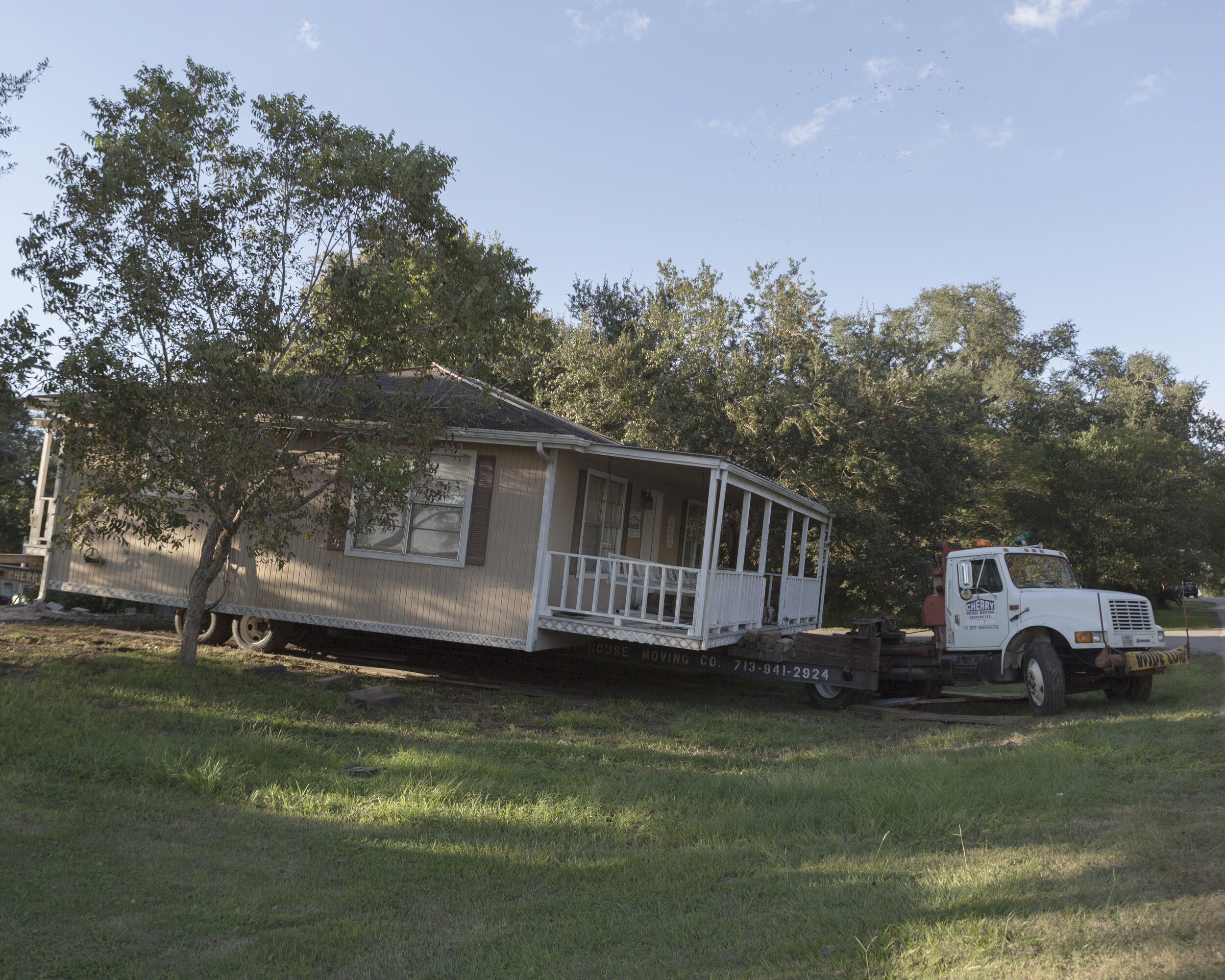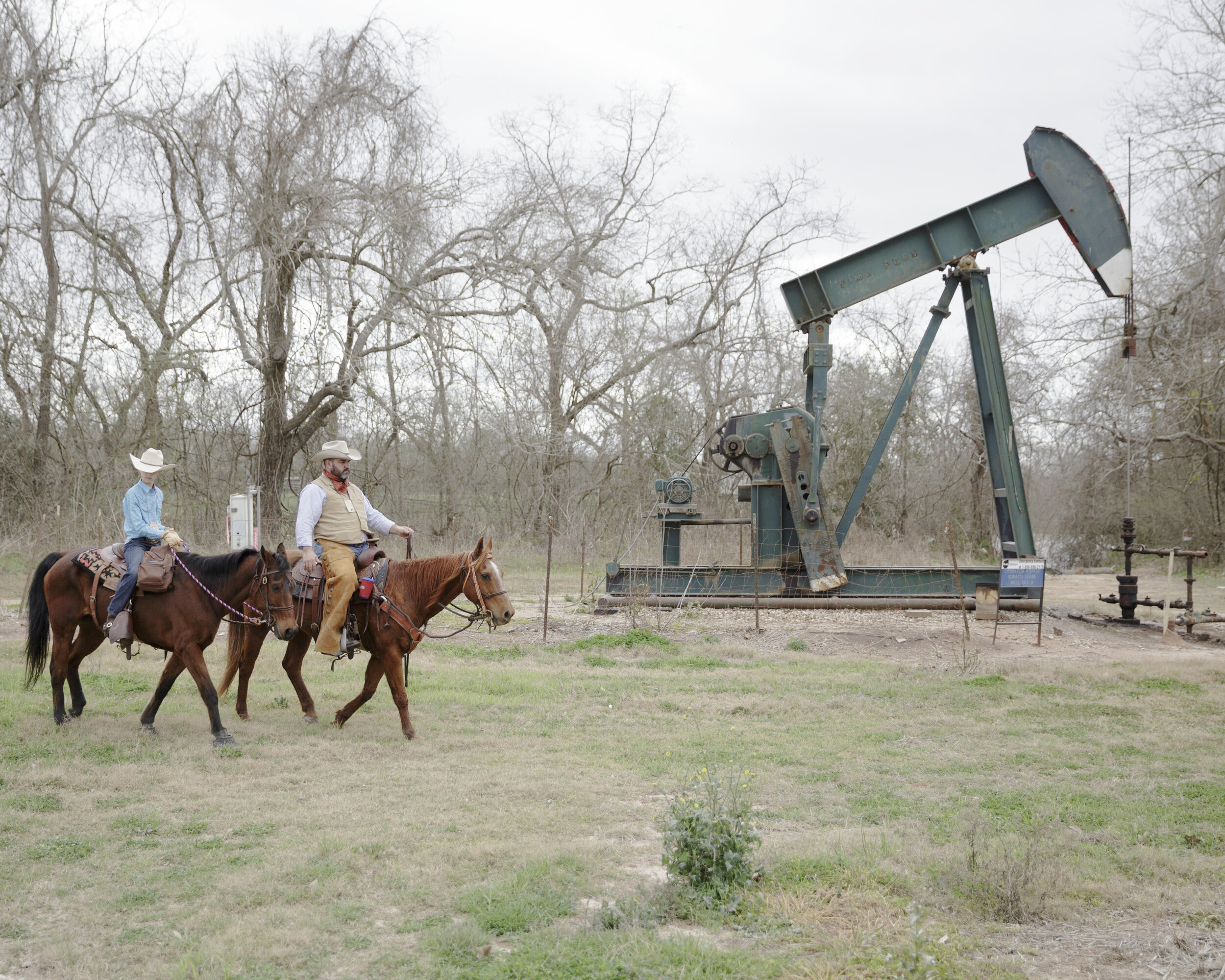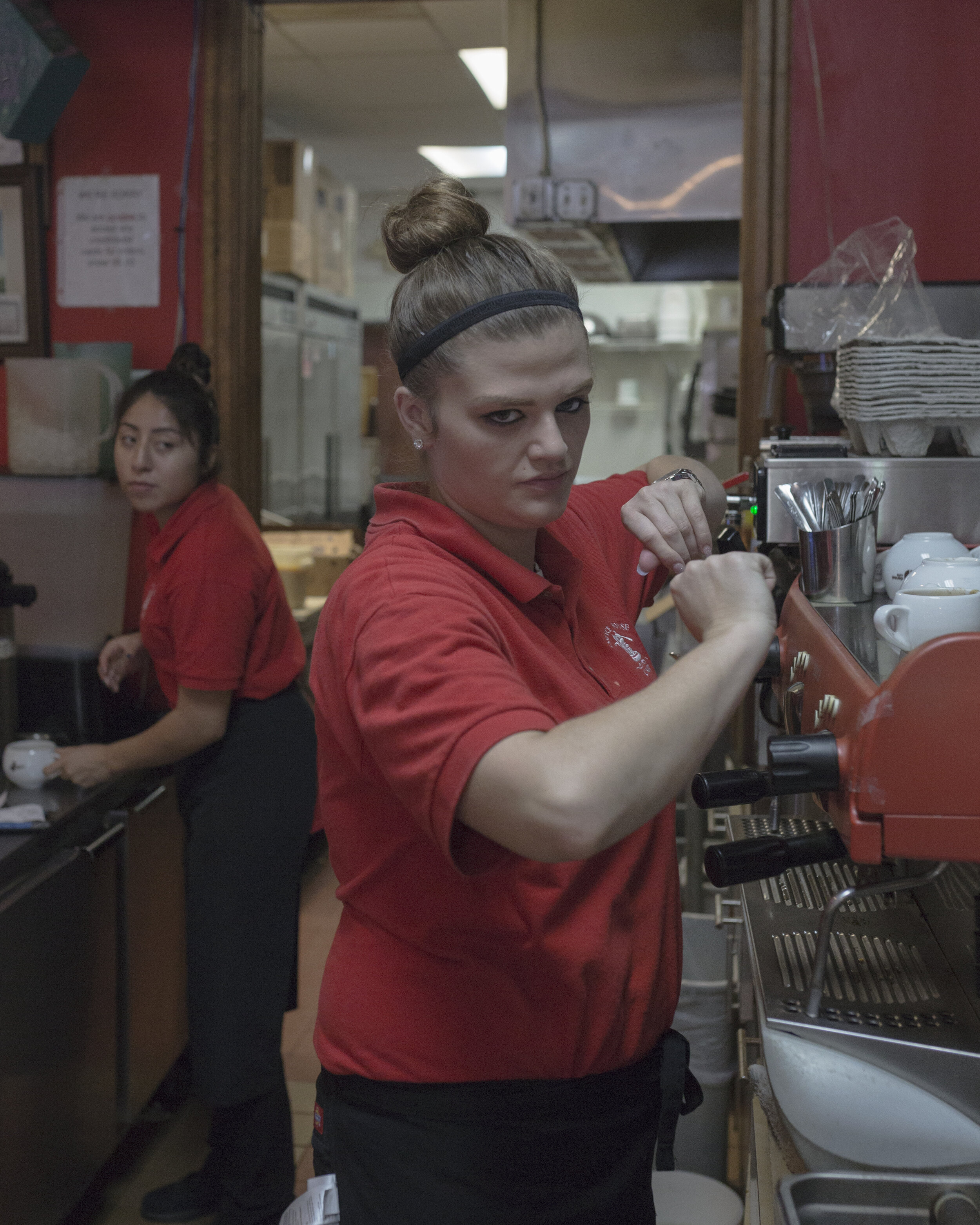A member of the Valley Lodge Trail Ride crosses over a highway overpass. In many ways, Fulshear is at an intersection of what was, is, and can be.
WHAT REMAINS
Nearly every time that I return to my hometown of Fulshear, Texas, I try to remember the way that it was. But often times, it is just not possible.
As of 2020, my hometown is one of the fastest growing town in the state of Texas, according to the United States Census Bureau.
When I was a young child, I remember sitting in my family’s car, waiting to turn at the continuously blinking traffic light with no other cars at the single intersection of the town west of Houston. With a population of just over 1,000 individuals in 2010, Fulshear has experienced a growth rate of about 663% in under a decade. It is safe to assume that Fulshear will inevitably become a generic suburban sprawl of the Houston metropolitan area.
The town is still small, but in many ways, Fulshear represents the vast contradictions in American society. What determines the level of wealth in one’s life— is it monetary prosperity or a connection to one’s surroundings? As more individuals move to major cities across the country, suburbs will inevitably grow. The town of Fulshear illustrates what is happening to other areas in the United States with rapid population growth.
When the expansion began to occur, many felt that the area was empty, and that convinces, such as national retail stores or high-end businesses, would help the community. In retrospect, this was the beginning of the end for Fulshear the way I, and many others, knew it.
The traffic light of my childhood no long exists. My family’s single car sitting in the turning lane has now been replaced with a line of predominantly luxury cars backed up for miles. Dusty cattle ranches are now extravagant farms. Vast prairies have transformed into tract housing that stretches on as far as one can see, with one identical roof after another.
Memories are fleeting. In one moment, they are gone. I returned to Fulshear to find glimpses of not only the past of myself and other long-time residents, but also moments that represent the present and future for my changing community, in order to show what happens to a culture when convenience outweighs the long-term effects of urbanization.
My hometown is no longer recognizable to me, but I know that there are brief views into what remains— they just need to be rediscovered.
When I first moved to Fulshear at three years old, there was next to nothing there. Not a gas station, grocery store, or library. Looking through a car window, there was nothing but a blur of pastures and trees.
The walls of Dozier’s Grocery and Market, a barbecue restaurant and smokehouse opened since 1957, have withstood the transformation.
A mural hangs above the bookshelves of my childhood elementary school, depicting the landscape of what Fulshear once was.
The reality of what this town is today is much different. With each new road finished, house built, or pile of dirt removed, memories of myself and the other residents who spent their lives in Fulshear have eroded.




“Fulshear was just like an ordinary town,” Viola Randle said. “There weren’t many houses. We all did sharecropping. It was just wide-open spaces. They say they wanted to move out here because it’s nice and quiet. Yes it was nice and quiet, now it’s nice and crowded. But nothing stays the same.”


“This is a special place, it’s not just somewhere in the world,” Zerlean James said. “Fulshear has been a special place for a lot of special people. When I was young, there was a lot of open space. You knew everyone. Now, I can lay in my bed and hear the cars. The traffic is so heavy out here. They would come out here because they loved the breeze. They enjoyed it just as much as I did, but it started fading when people started learning about Fulshear.”
West of downtown, remnants of the past can be seen. Pecan trees stand tall. Memories of riding horses, wandering the woods, and witnessing the capability of nature is evident.
East of downtown Fulshear, with trees that are strategically plotted, the control that nature once had over the Texas prairie is now overwhelmed with a suburban landscape.
Fulshear was growing, but there was a lack of concern for protecting what everyone move to the city here for. By the time that I left to attend college in another state, there street lamps all the way out to Fulshear from Houston. We were a small town experiencing big changes.

The majority of individuals who grew up in Fulshear have chosen to move away, taking the town's history with them. Replacing them are individuals and families wanting a quiet, country lifestyle.




My favorite thing about Fulshear as a young child was the simplicity of the area. My mom worked at the local bank on Main Street, and one could not go anywhere without speaking to at least five people along the way. Almost everyone knew each other. We felt like a community because if if we all did not get along all the time, we were still in it together.
Isabel Levy makes and espresso drink at a local cafe, as I once did the same as a teenager.

Bill tells me that this day feels like fishing when things in the area were almost silent, something that is rare in most of the Fulshear today, due to a high volume of construction.
He talks about loving the feeling of being alone in nature, and that he loved the times when he knew nearly everyone in Fulshear almost as much. Of course, like most who I’ve spoken with, seeing a familiar face in town rarely happens now.
We discussed that Bill knew who used to own the ground that he stood on. That he and his family have lived in Fulshear for as long as anyone can remember, well over 100 years, but probably longer. That he doesn’t plan on leaving anytime soon, even as the Houston traffic and suburban houses creep closer and closer. And that he would be back out to Bessie’s Creek the next day, when the fish weren't so deep in the water.




“I miss the small town atmosphere and the people,” Joe Dozier said. “It’s not the Fulshear that I grew up in. Don’t judge it by what it is now. To be honest, I don’t even like going out there anymore.”
Only very early in the morning or late at night do the streets of my childhood looks the same. It is here, at this time and in moments like these, where my memories remain.


























